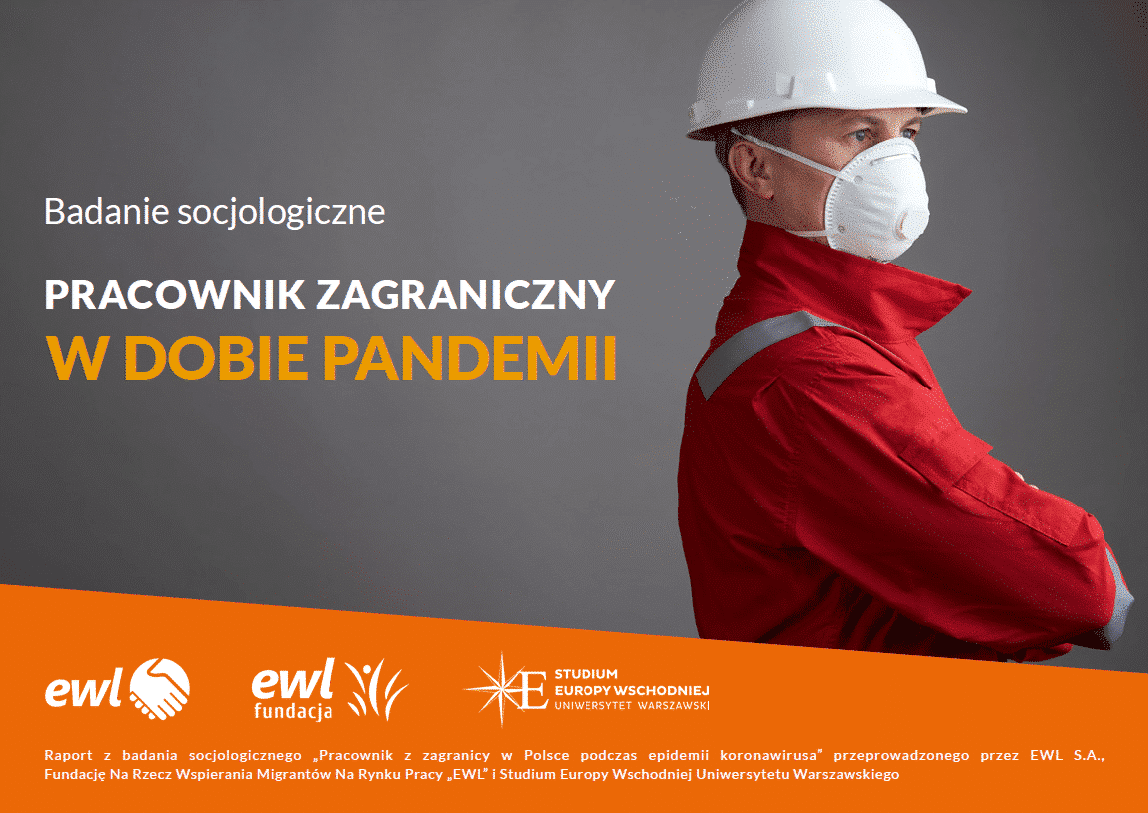The vast majority of foreigners working in Poland (85%) prefer to stay in our country for the duration of the coronavirus pandemic, mainly due to their earnings and possibility of work (55%). This is evidenced by the results of the sociological study ‘A foreign employee in the pandemic’ conducted by EWL S.A. and the Centre for East European Studies at the University of Warsaw.
The study showed that foreign employees in Poland were negatively affected by the coronavirus pandemic. More than half of employed foreigners had to face a reduction in the number of hours worked (61%) and more than 1/4 of them changed their employment sector (27%). Moreover, every second respondent declared that in the current situation they were most afraid of losing their jobs (58%). In comparison, only one in six economic migrants (18%) is afraid of the coronavirus infection.
However, it is encouraging that foreigners, even in the current challenging situation, feel safe in Poland (72%), and the restrictions they have to face on a daily basis in our country are assessed by them positively (71%).
It is worth noting that almost 2/3 of foreigners in Poland (63.5%) intend to benefit from the automatic extension of the validity of permits for residence and work in Poland during the pandemic, which is proposed by the Polish government.
‘Currently, when companies are gradually resuming production and Polish farmers are preparing for the opening of the season, this lack of manual employees will be severely felt and the path to acquiring them is blocked. This means it is high time for further decisive steps taken by the authorities towards the introduction of special solutions for foreigners working in Poland. All the more so because countries such as Germany, Finland and the United Kingdom have already joined the fight for seasonal employees from the East.’
says Andrzej Korkus, CEO of EWL S.A. about the results of the study.
The sociological study ‘A foreign employee in the pandemic’ was conducted by EWL S.A. and the Centre for East European Studies at the University of Warsaw on 9 – 15 April 2020. 600 foreigners working in Poland, mainly from Ukraine, Belarus and Moldova, were surveyed using the CAWI (Computer Assisted Web Interview) method.
Download the report [doc id=43403]



